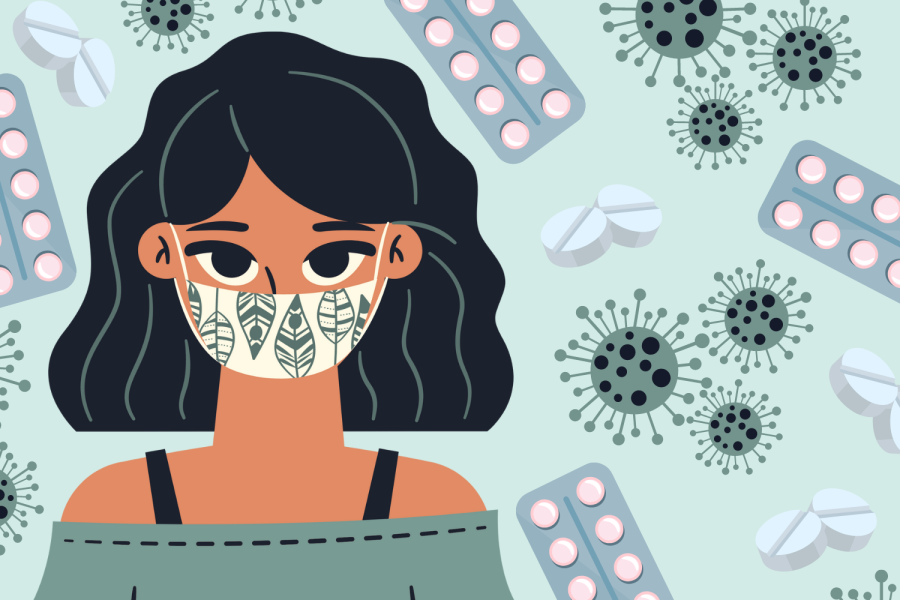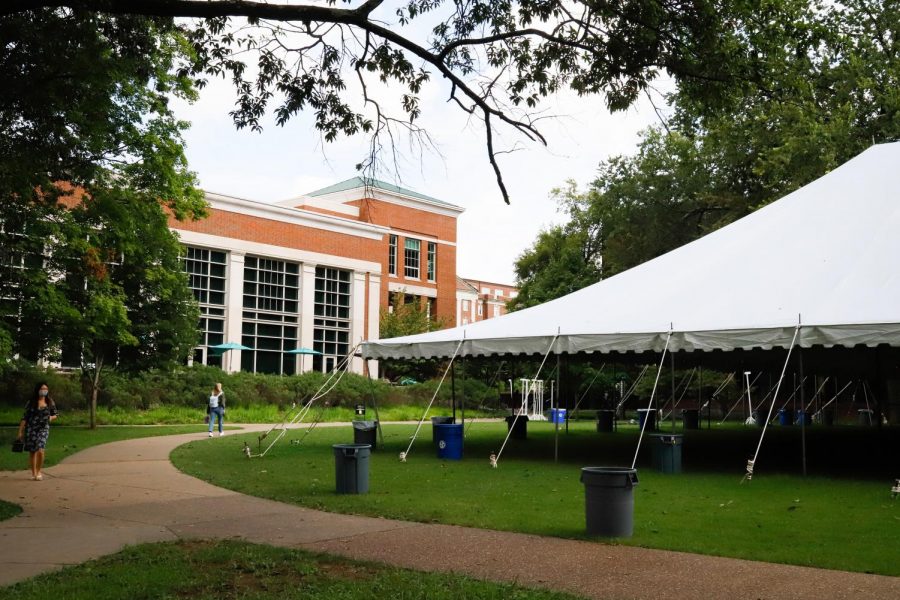Updated March 18 at 10:02 a.m. to include the account of a first-year student who has tested positive for COVID-19 in Nashville.
At least seven more Vanderbilt students have tested positive for COVID-19 in the past few days. Two students tested positive in Nashville; one lives in an off-campus apartment and the other, a first-year, is currently residing on campus. Two other students confirmed their cases but declined to provide more information. The recent diagnoses bring the total count of Vanderbilt students with COVID-19 to at least eleven.
Three of the seven newest cases among students contracted the virus after spending time in Spain: two of the students were studying abroad in Spain this semester and the other visited friends there over spring break, returning to campus briefly before learning he might have the virus. The number of people with COVID-19 in Tennessee is up to 74, with 46 of them residing in Davidson County.
March 17
The first-year student learned that their COVID-19 test came back positive Tuesday morning. They went home for spring break and believe that they likely acquired the virus since returning to Vanderbilt. After the student developed a headache on Saturday and developed chills, aches, a fever and chest pain, they went to a nearby clinic to get tested for COVID-19.
On Monday, the first-year was contacted by Vanderbilt and moved to isolate elsewhere on campus. A VUPD officer picked the student up in a golf cart and, after outfitting them with an N95 respirator mask, drove them to the campus residence where they would be living for the next couple weeks, the student said. While the student is concerned that they may have infected other students, they appreciate that Vanderbilt is taking care of them.
“I think it’s definitely not great that I was living just as a student in [my dorm] for five-ish days. I tried to stay in my room as much as possible once I started getting suspicious,” the first-year said. “Once Vanderbilt knew [that I might have COVID-19] they acted well and responsibly. I’m happy with where they put me and they’re taking care of me, so I appreciate that.”
The student said that a staff member has been delivering him food. Because he has family members who are immunocompromised, he said he’s glad he could avoid going home and isolate on campus.
March 16
Among the students testing positive is junior Jeremy Gimbel, who tested positive despite having no symptoms following a trip to Spain over spring break. The other students spoke on the condition of anonymity due to their sensitive medical diagnoses.
After a week in Spain, Gimbel returned to campus Saturday, March 7. The next day, one of the friends Gimbel had travelled with, Max Schulman, reported COVID-19 symptoms. Subsequently, Gimbel and the rest of their travel group avoided class Monday. When Schulman’s test came back positive midday Monday, March 9, Gimbel said he immediately got in his car and drove to his home in Ohio to go into self-isolation. He has no roommates at Vanderbilt. Monday evening, Vanderbilt shifted classes to online through March 30, and two days later, Vanderbilt shifted classes online for the rest of the semester and urged students to move out.
At home, Gimbel was connected with a nurse that works in infectious diseases who tried to get him a COVID-19 test. The nurse told him that he couldn’t get tested without showing symptoms because there aren’t enough kits. On Saturday, when another friend in his travel group tested positive for COVID-19, Gimbel contacted the infectious diseases nurse again and asked to be tested. After reporting extended contact with two individuals who had tested positive for COVID-19, medical professionals agreed to administer a test, which came back positive Monday morning, even though Gimbel has no symptoms.
“They’re still telling people that unless you have symptoms, you shouldn’t [get tested]. But if you know the right people or have enough direct contacts, they’ll test you,” Gimbel said.
Gimbel entered self-isolation as soon as he got home, he said, adding that his family has been delivering food outside his door.
A shortage of COVID-19 test kits has emerged as an issue across the country, partly as a result of the U.S. declining to use the World Health Organization’s test template and instead relying only on a test created by the Center for Disease Control.
“I’m most worried that there are still people who aren’t necessarily following any sort of guidelines whatsoever, they’re not being cautious,” Gimbel said. “Knowing that I’m asymptomatic and I can still be pretty contagious makes me nervous for everyone else that’s out there and could potentially contract the disease.”
Evidence from South Korea and Italy, which have drastically different testing practices, has suggested that many young people with novel coronavirus might have mild or no symptoms, though they can still spread the virus. South Korea has been testing about 4.5 times more of its population, and experts suggest that by doing so it has caught many more COVID-19 cases in young people with mild or no symptoms.
Italy has reported the highest death rate from novel coronavirus, largely ascribed to the age of its population. The average age of people dying from coronavirus in Italy is about 80. The mortality rate in Italy is the highest in the world at 8.8 percent, while South Korea’s mortality rate from coronavirus is roughly .9 percent, according to the latest counts. For seasonal influenza, the mortality rate is estimated by the World Health Organization at below .1 percent, while the overall mortality rate for COVID-19 is estimated between two and 3.4 percent.
On Monday, President Trump held a press conference with leading health officials which recommended social distancing measures, or ways to decrease the spread of the virus. The guidelines included avoiding groups of more than 10, discretionary travel, bars and restaurants. Vanderbilt also published a message promoting social distancing, described as avoiding mass gatherings and staying six feet from others when possible.
Those who believe they may have been exposed to or infected with the novel coronavirus should seek medical care right away. Before you go to a clinic, doctor’s office or emergency room, call ahead and tell them about your recent travel and your symptoms.
This article will be updated as new information becomes available.













